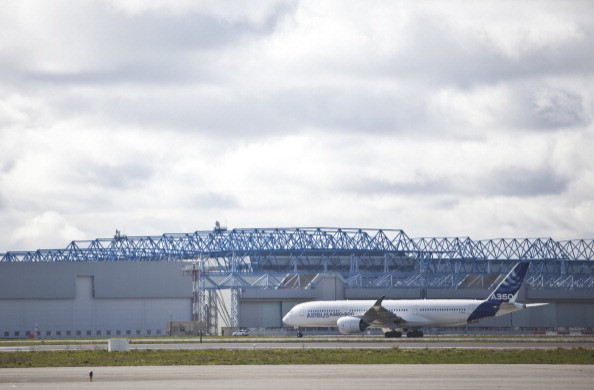Holiday warning as France bans popular internal flight routes
France is also set to join the Netherlands in banning private jets.

France has banned several internal flights on routes where train alternatives exist in an attempt to cut carbon emissions.
With the summer just around the corner and air travel set to increase as a result, flights in certain aviation routes have been suspended in France where the journey can be completed in two-and-a-half hours by train. Now, travellers won't have the option of air travel from Paris to other popular cities in the country such as Nantes, Lyon and Bordeaux. However, connecting flights are unaffected, reported CNN.
High-speed rail alternative
The suspension of short-haul flights has finally been put in place two years after the law was passed. For the ban to be implemented, the European Union (EU) insisted there should be a high-speed rail alternative. As a result, a four-hour train journey was brought down to two and a half hours following push back from airlines, according to Mirror.
The law also stated that the train services on the same route must be frequent, timely and well-connected enough to meet the requirements of passengers who would otherwise travel by air, while the new train alternative should also be able to bear the increase in passenger numbers. People should be able to make outbound and return train journeys on the same day, having spent at least eight hours at their destination.
The latest ban was enforced by Emmanuel Macron's government just a month after the UK slashed taxes on internal flights.
It is understood that the French government got Air France to agree with the latest law in exchange for a 2020 coronavirus financial support package, while competitors were ordered not to simply fill in the gap.
In a recent interview, Laurent Donceel, interim head of industry group Airlines for Europe (A4E), said that "banning these trips will only have minimal effects" on CO2 output. He added that governments should instead support "real and significant solutions" to the issue.
A4E have also highlighted its own net zero by 2050 strategy, which includes switching from non-fossil sources to jet fuel and deploying battery- or hydrogen-powered aircraft. The said step has come up as French politicians have also been discussing how to reduce emissions from private jets.
Private jets to reduce in France
Meanwhile, French consumer group UFC-Que Choisir has urged lawmakers to retain the four-hour limit.
"On average, the plane emits 77 times more CO2 per passenger than the train on these routes, even though the train is cheaper and the time lost is limited to 40 minutes," it said. It also called for "safeguards that [French national railway] SNCF will not seize the opportunity to artificially inflate its prices or degrade the quality of rail service".
France's Transport Minister Clément Beaune said the ban also aims to crack down on private jet use, claiming the country could no further tolerate the super-rich using the luxury form of aviation. This could be a great move when it comes to reducing CO2 emissions drastically, as air travel is believed to be one of the most polluting ways to travel on a per passenger basis.
It was earlier reported that Schiphol Airport in Amsterdam is set to become the first airport in Europe to ban private jets in order to curb pollution and lower CO2 emissions. Private jets and small business planes are quite noisy and are very bad for the environment. The board members at Schiphol Airport believe that those who travel by luxurious private jets are definitely capable of travelling on commercial jets, which are far less polluting per passenger and fly to many of the destinations most popular with private plane users.
However, it is still not known when Schiphol Airport will bring the said ban in place. In addition, the Amsterdam airport is also planning to suspend overnight flights by the end of 2025.
© Copyright IBTimes 2025. All rights reserved.






















